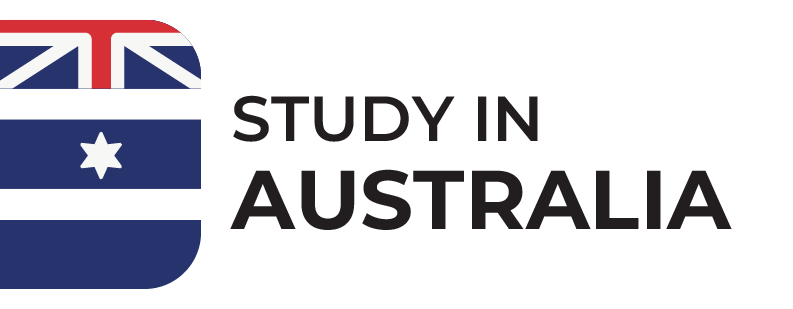In an ever-growing competition for job opportunities, pursuing higher education is an important asset and pathway toward improving your skills, gaining specialised knowledge, and increasing your employability.
Apart from being a fantastic way to explore a new culture and way of living, undergraduate studies in a developed country such as Australia will give you a competitive edge and strengthen your skills in your chosen field of study.
Table of Contents
What Is the Difference Between Undergraduate and Postgraduate Degrees?
If you’re unfamiliar with the terms ‘undergraduate’ and ‘graduate’ courses, it is important to distinguish between them in order to carefully plan your studies.
Both undergraduate and graduate studies are part of tertiary or higher education; however, there is a main difference between the two.
- Undergraduate education refers to study programs you undertake after completing secondary education (high school) and before postgraduate studies. According to Australia’s education system, undergraduate programs lead to a qualification that can include diplomas, associate degrees, bachelor’s degree programs, and more.
- Once you have gained a graduate degree, you can apply to a postgraduate program, which involves a more advanced level of studies or research in a chosen field. Postgraduate study programs in Australia can include postgraduate diplomas, master’s degrees, and doctoral degrees.
Undergraduate Studies in Australia According to the Australian Qualifications Framework
National standards for educational qualifications in Australia, including undergraduate qualifications, are specified through the Australian Qualifications Framework (AQF). This national policy is administered by the Australian Government’s Department of Education, Skills and Employment. The AQF defines learning outcomes for each level of education as well as policy requirements for institutions issuing AQF qualifications.
AQF is developed by the government in consultation with Australian states and territories and incorporates the credentials from all areas of education and training (schools, higher education, and vocational training) into a single framework. The AQF has 10 levels which range from Certificate 1 to the doctoral degree, with higher education levels being from 5 to 10.
As for undergraduate qualifications, the Australian Qualifications Framework (AQF) defines them through levels 5 to 8 as follows:
| AQF Level | Qualification | Degree Level |
| 8 | Bachelor Honours Degree | Undergraduate |
| 7 | Bachelor Degree | Undergraduate |
| 6 | Associate Degree | Undergraduate |
| 6 | Advanced Diploma | Undergraduate |
| 5 | Diploma | Undergraduate |
Diploma (Level 5)
A diploma qualification in Australia is gained by students who want to qualify for advanced skill or paraprofessional work. This qualification is located at level 5 of the Australian Qualifications Framework and is often undertaken by people as a pathway to further education and learning, for example as preparation for a bachelor’s degree.
A diploma course will typically last one to two years and will teach you practical hands-on skills and knowledge as specified in the AQF’s criteria. You can find accredited diploma courses in various higher education and vocational education and training institutions.
Here are some examples of diploma programs offered by the best Australian education institutions:
| Institution | Program Name | Duration | Cost |
| Australian National University | Diploma of Science | 1 year full-time | 42,000 AUD |
| The University of Melbourne | Diploma in Computing | 1 year full-time | 50,272 AUD |
| The University of Sydney | Diploma of Language Studies | 1 year full-time | 46,500 AUD |
Advanced Diploma (Level 6)
One AQF level higher than the diploma, the advanced diploma qualification is undertaken by people who want to gain specialised knowledge in various contexts in advanced skilled or paraprofessional work. Similarly to the diploma qualification, the advanced diploma is also often chosen as a pathway for more advanced qualifications/degrees or a way to gain credits that you can transfer to a degree-level program, with the main difference being that the advanced diploma has a longer duration.
Advanced diploma programs can take from one to three years to complete depending on the program, and will teach you more sophisticated skills and comprehensive knowledge needed in senior work roles. These skills and outcomes are defined by the AQF; therefore, the university or institution you choose should be accredited in order to comply with these requirements.
These are some examples of advanced diploma programs offered by some trusted Australian education providers which you can explore:
| Institution | Program Name | Duration | Cost |
| RMIT University | Advanced Diploma of Electronics and Communications Engineering | 2 years full-time | 19,750 AUD per year |
| Engineering Institute of Technology (EIT) | Advanced Diploma of Leadership and Management | 18 Months | 8,000 AUD |
| Kenvale College | Advanced Diploma of Hospitality Management | 92 weeks | 20,160 AUD |
Associate Degree (Level 6)
At level 6 of AQF’s levels, an associate degree is one level below a bachelor’s degree. This type of undergraduate degree involves a short-cycle and practical study program that is aimed at people who want to learn technical and academic skills that will help them in their careers and who don’t have the time to pursue further studies. Additionally, a lot of students who don’t meet all criteria to enter a bachelor’s program earn this qualification as a guaranteed pathway towards that degree.
Most associate degree programs last two years full-time or longer if you’re enrolled part-time. This program will cover foundational theoretical knowledge and teach you basic employment skills in your chosen field of study.
Here are a few examples of associate degree programs at some Australian universities:
| Institution | Program Name | Duration | Cost |
| The University of Adelaide | Associate Degree in Construction Management | 2 years full-time | 45,500 AUD per year |
| University of South Australia | Associate Degree in Engineering | 2 years full-time | 39,700 AUD per year |
| University of Tasmania | Associate Degree in Agribusiness | 2 years full-time | 25,950 AUD per year |
Bachelor Degree (Level 7)
The bachelor’s degree qualification is a standard and universally-accepted undergraduate degree. This degree stands at level 7 on the Australian Qualifications Framework and is a basic qualification you may need to enter a specific field of work. If you enrol in a bachelor’s degree program, you can expect to be equipped with the problem-solving skills and foundational knowledge needed to qualify for roles in a career or to advance in your current career.
This degree is most often completed following Australian Year 12 (high school) or an international equivalent, Certificate III or Certificate IV. The duration of a bachelor’s degree can range between three to five years, depending on the program, university, and field of study. You choose. After earning this qualification, you are eligible to pursue postgraduate studies if you wish to further earn specialist qualifications.
When it comes to bachelor’s degrees, there is a plethora of programs and courses available at Australian educational institutions, including science, management, health sciences, law, humanities, design, and much more. Plenty of students in Australia also pursue a double or combined bachelor’s degree program, leading to the award of two bachelor’s degrees.
Considering the prestige and high-ranking programs offered by Australian universities, you are sure to make a fine choice anywhere you go.
Here are some sample bachelor’s programs offered by some of the best universities in Australia:
| Institution | Program Name | Duration | Cost |
| Deakin University | Bachelor of Marketing (Psychology) | 3 years full-time | 36,800 AUD per year |
| University of Technology Sydney | Bachelor of Business | 3 years full-time | 42,816 AUD per year |
| The University of Queensland | Bachelor of Environmental Science | 3 years full-time | 45,568 AUD per year |
Bachelor Honours Degree (Level 8)
The highest level of undergraduate studies in Australia is the bachelor’s honours degree, which stands at level 8 on the AQF scale. An honours degree is either awarded for good performance as an additional year of study after the completion of a three-year bachelor’s degree (stand-alone honours) or for performance at credit or distinction average level in four-year degrees. Some specialist or professional degrees also can have integrated or embedded honours.
Completing an honours-level award will typically entail a blend of coursework and a research project or thesis that prepare students for further research study. This degree is indicated by “Hons” following the degree abbreviation, for example, BSc (Hons). The majority, if not all, of honours degrees in Australia are offered by universities only.
Below are some examples of honours degrees offered by universities in Australia:
| Institution | Program Name | Duration | Cost |
| Macquarie University | Bachelor of Engineering (Honours) | 4 years full-time | 40,800 AUD per year |
| Queensland University of Technology (QUT) | Bachelor of Laws (Honours) | 4 years full-time | 30,900 AUD per year |
The University of New South Wales (UNSW Sydney) | Bachelor of Social Science (Honours) | 1 year full-time (after completing 3 years in a bachelor’s program) | 39,480 AUD per year |
*All fees presented above are indicative and apply only to international students.
With a high standard of living, excellent schools, and countless international student resources, Australia offers everything you can ever need as an undergraduate student. These degrees are meticulously planned and monitored to ensure compliance with all tertiary education standards.

